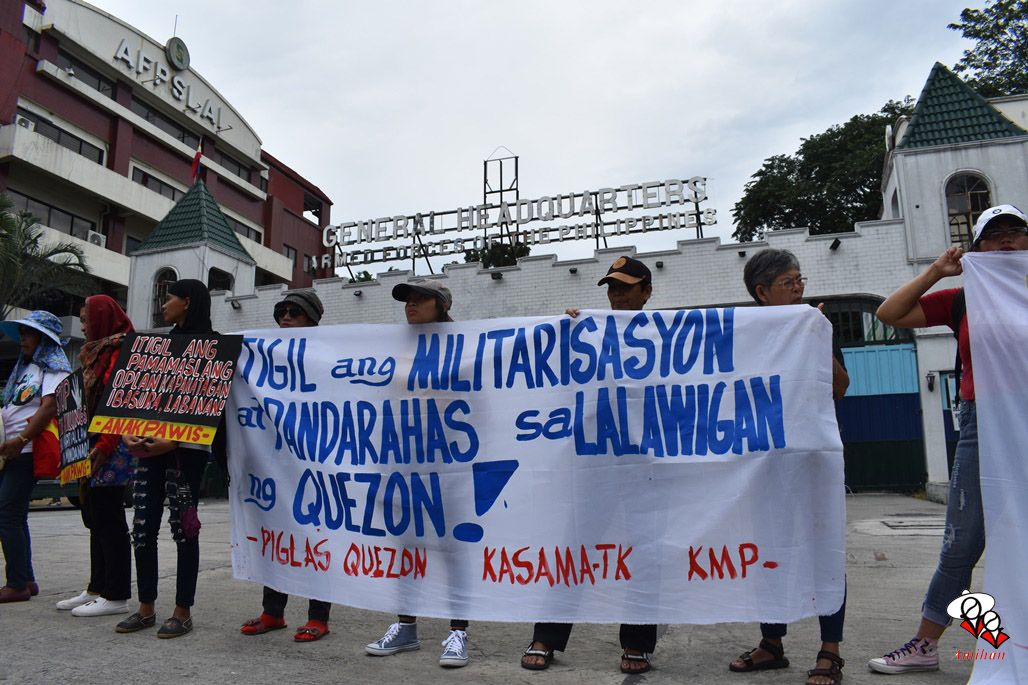Recently, I met two women copra workers from Quezon who related their harrowing experience of military abuses. Their families fled from their mountain homes, leaving behind their belongings, their farm animals, and their livelihood.
Neighbors’ houses were far apart where they lived. One woman lived on a mountain, the other on the next mountain. They had been actively protesting against falling copra prices in December. From January to May 2019, the 85th Infantry Brigade camped out at the barangay hall did surveillance operations. A census was conducted to identify who among the residents were members of militant organizations.
They would ask men to surrender or if not, be charged as NPAs. The men were told that they will receive money for surrendering. The soldiers gave goods such as sardines, noodles, and rice to surrenderers. Those who were made to sign a document stating that they were NPAs, and made to wear fatigues, received nothing.
Soldiers, already notorious for red-tagging suspected NPA guerrillas, for illegal arrests and detention, forcing surrenders, aerial bombings, EJKs, recruitment of CAFGU, and psychological and physical abuse, would offer candies to children to wheedle information from them or make them obey orders. The lasses became the soldiers’ girlfriends, either through force or intimidation. The youth were trained to use guns.
When soldiers came to the two women’s houses, sometimes as many as eight (8) men at a time, their usual questions were: “Do NPA cadres drop by your house?” “Where is the headquarters of the NPA?” The soldiers asked if they had let NPA cadres into their houses, fed and given these cadres water; if they had then they were NPA supporters.
By July 2019, the two women’s families already knew that they were in danger if they stayed.
A few months ago, Gabriela Women’s Party Rep. Arlene Brosas denounced in her privilege speech the sexual harassment and other attacks on indigenous women and the people of San Mariano, Isabela committed by the military. Soldiers of the 95th, 86th, and 17th Infantry Battalion were partying because one of them won in jueteng. They asked men and women, young and old, to drink with them. Then they asked the women to dance. When the women refused, they were forced to ‘sway their hips’ while rifles were pointed at them. There were acts of lasciviousness committed by soldiers on the women, and imprisonment on the basis of trumped up charges.
Rural women, be they rice farmers, copra workers, fisherfolk and other farm workers, are most often unrecognized for the work they contribute.
The stories of the rural women of Quezon and Isabela are the stories of the rural women of Samar, Leyte, Mindoro, Bikol, Batangas, Negros, Mindanao, and other places under military operations.
On October 15, 2019, and this October Peasant Month, we, the Rural Women Advocates, join the demands of peasant groups and their defenders to #StopMilitarizationNow.
Mary Angelica Reginaldo
Rural Women Advocates
(RUWA)Quezon City

